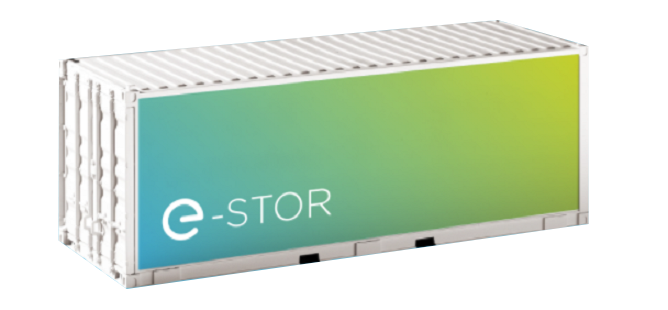Energy storage provider Connected Energy has secured £3 million of investment from Macquarie Group and ENGIE to fuel its growth plans in the UK and abroad.
The working capital unlocked by the investment will be used to build Connected Energy’s team, with specific positions in sales and operations to be created. The investment will also be used to build the company’s research and development expertise, with chief executive Matthew Lumsden telling Clean Energy News that Macquarie and ENGIE offer more than just cash.
“We’ve spent the last 12 months putting [the investment] together and we were very keen to get people that could add more than money to the business. It’s about expertise and market insight.
“What we’re learning is that it’s a very embryonic market and customers really value some technical expertise – whether it be market expertise or around the engineering – so we’re trying to provide some good support around that,” he said.
“We are delighted that Macquarie and ENGIE have provided this significant financial and management value for our phase of aggressive market growth.”
Since the beginning of 2017 when Connected Energy employed a team of six, the company has added around ten additional staff and will seek a further ten over the next six months.
The new staff will work to further develop the company’s behind the meter commercial and industrial solution E-STOR, which is designed to help customers mitigate their network costs and achieve uninterrupted power.
The stationary energy storage system uses second life battery packs from electric vehicles after they have completed their useful lives on-board vehicles. The company, which says the E-STOR is the only commercially available system of its kind to use EV battery packs rather than just the modules, added that this offers the same performance as first life batteries, but at a lower cost and in an environmentally friendly manner.
“We provide the supplier, which in most cases at the moment is Renault, with a specification and then our system talks to their battery management system. Renault has expended an enormous amount of investment in making sure it’s safe and efficient for the EV so we don’t interfere with any of that we just speak to it and use it as it is.
“Our control system then sits on very tried and tested established technologies, we don’t pull it to pieces. We use all of the existing system; we don’t have to put a new battery management system in there but we can do a good diagnostic on the battery so we know exactly what condition it’s in. So we think it’s more cost effective,” Lumsden explained.
Connected Energy currently has up to six small scale systems currently installed, with up to four in the pipeline ranging from small up to 500kW and up to just over 1MW in size. The company will then work with aggregators to take the batteries into the ancillary services market to provide frequency response, with an eye on future capacity market auctions.
Matthew Booth, senior managing director in Macquarie’s commodities and global markets group, said: “The provision of energy storage to support grid stability and create a charging network for electric vehicles will be a major theme in power infrastructure over the coming years. We are pleased to have invested in this innovative company which has developed an environmentally friendly and low cost solution to help meet this need.”






